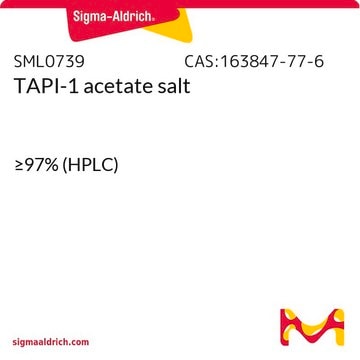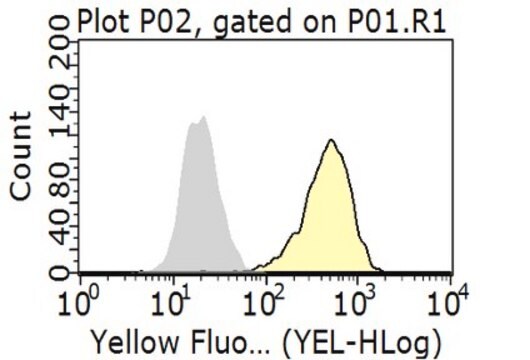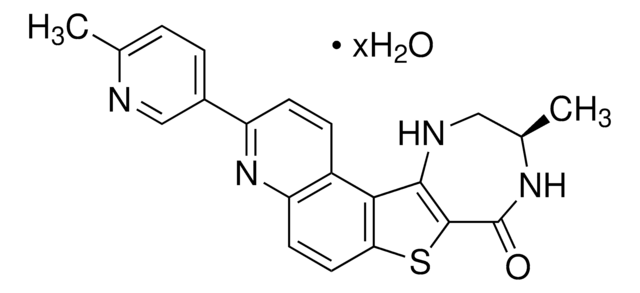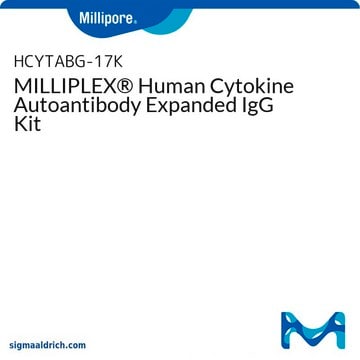E6280
Anti-Endothelial Cell Protein C Receptor antibody, Rat monoclonal
clone RCR-252, purified from hybridoma cell culture
Sinónimos:
Anti-EPCR
About This Item
Productos recomendados
biological source
rat
conjugate
unconjugated
antibody form
purified immunoglobulin
antibody product type
primary antibodies
clone
RCR-252, monoclonal
form
buffered aqueous solution
mol wt
antigen 49 kDa
species reactivity
human
technique(s)
flow cytometry: 5-20 μg/mL using HUVEC cells
microarray: suitable
isotype
IgG1
UniProt accession no.
shipped in
dry ice
storage temp.
−20°C
target post-translational modification
unmodified
Gene Information
human ... PROCR(10544)
Categorías relacionadas
General description
Immunogen
Application
Biochem/physiol Actions
Physical form
Disclaimer
¿No encuentra el producto adecuado?
Pruebe nuestro Herramienta de selección de productos.
Storage Class
10 - Combustible liquids
wgk_germany
WGK 2
flash_point_f
Not applicable
flash_point_c
Not applicable
ppe
Eyeshields, Gloves, multi-purpose combination respirator cartridge (US)
Certificados de análisis (COA)
Busque Certificados de análisis (COA) introduciendo el número de lote del producto. Los números de lote se encuentran en la etiqueta del producto después de las palabras «Lot» o «Batch»
¿Ya tiene este producto?
Encuentre la documentación para los productos que ha comprado recientemente en la Biblioteca de documentos.
Nuestro equipo de científicos tiene experiencia en todas las áreas de investigación: Ciencias de la vida, Ciencia de los materiales, Síntesis química, Cromatografía, Analítica y muchas otras.
Póngase en contacto con el Servicio técnico








